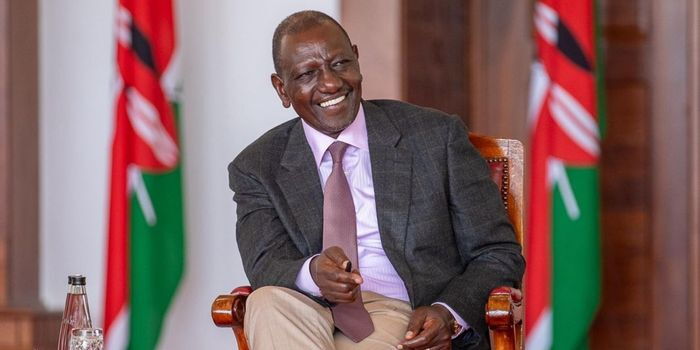President William Ruto has come under fire after offering an apology to Kenya’s youth, known as Gen Z, and the neighbouring countries of Tanzania and Uganda.
Kiambu Senator Karungo wa Thang’wa, who is closely allied with former Deputy President Rigathi Gachagua, strongly criticized the President’s approach and suggested a more meaningful way to seek forgiveness.
In a statement released on Thursday, May 29, Senator Thang’wa said that if Ruto genuinely wants to be forgiven by the youth, he must demonstrate it through action and adherence to the law.
He emphasized that genuine forgiveness comes from doing the right thing, not just offering words.
“The best way to seek forgiveness is by acting with integrity—respect the law, stop the misuse of government agencies, end excessive taxation, offer compensation where necessary, and most importantly, Skiza Ground—listen to the people!” Thang’wa urged.
President Ruto’s apology came a day earlier, on Wednesday, May 28, during the National Prayer Breakfast.
He addressed both the youth and Kenya’s neighbours in East Africa, asking for forgiveness for any past wrongs that may have occurred under his leadership.
Ruto expressed the importance of repairing and strengthening relationships both within the country and across borders to encourage development and unity.
“To the people of Tanzania, if we have wronged you in any way, we ask for your forgiveness. To our brothers and sisters in Uganda, please forgive us if there have been any mistakes,” Ruto said during the event.
Turning his attention to the youth, he added, “To our children, if there has been any error on our part, we sincerely apologise. We want to build stronger relationships to move our country and the region forward.”
Ruto’s remarks were influenced by a message from the event’s chief guest, Ricky Bolden—a former NFL star who is now a pastor.
Bolden urged Kenya’s leadership to offer a heartfelt apology to the youth, particularly in light of the violent anti-Finance Bill protests that resulted in fatalities and allegations of enforced disappearances.
“I hope and pray that the leaders of Kenya will apologise to Gen Z for the arrests, internet shutdown, and all the suffering they endured. They admire you, but they don’t feel respected,” Bolden stated passionately.
Despite Ruto’s attempt at reconciliation, many Kenyans on social media felt the apology lacked sincerity. Critics pointed out that the President used conditional language such as “if we wronged you,” which, they argued, avoided full responsibility.
One user on X (formerly Twitter) commented, “When you say ‘if’ in an apology, you avoid taking real responsibility. It makes the entire apology seem fake and hollow. That’s not how you make amends.”
Senator Thang’wa also called out what he saw as Ruto’s hypocrisy. He questioned how the President could ask for forgiveness from young Kenyans who had died during protests, yet fail to show the same forgiveness to others, like nominated Senator Gloria Orwoba.
Orwoba, a young Kisii woman, was recently expelled from the ruling United Democratic Alliance (UDA), the party led by Ruto.
“You are asking the dead Gen Zs to forgive you, but you can’t even forgive someone like Gloria Orwoba? That’s double standards,” Thang’wa remarked.
His comments highlighted growing frustrations with the President’s leadership, especially among youth and political allies of the former deputy president.
Many believe that instead of offering apologies filled with vague wording, Ruto should show true accountability through fair governance, justice, and listening to the cries of the nation.
Join Gen Z New WhatsApp Channel To Stay Updated On time https://whatsapp.com/channel/0029VaWT5gSGufImU8R0DO30


